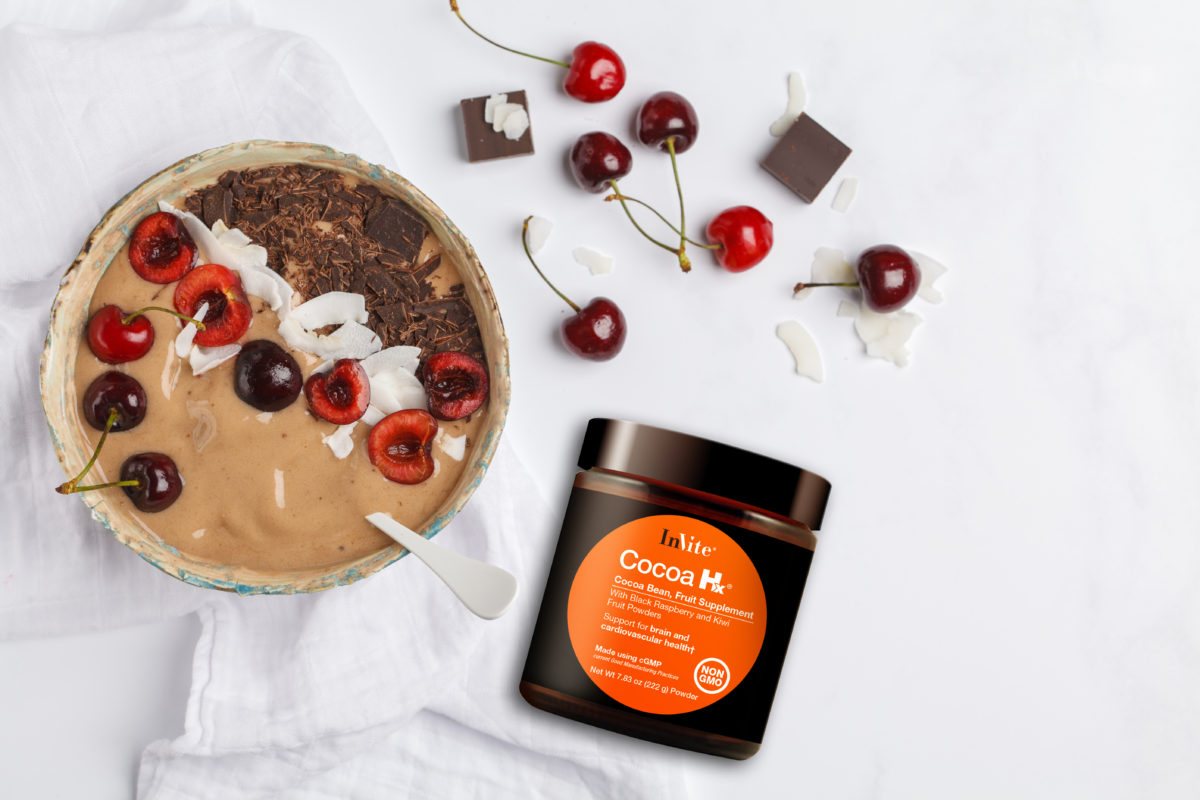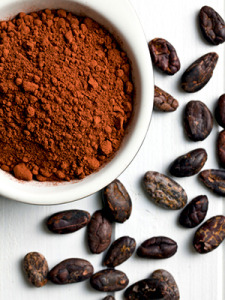Cocoa Also Supports Your Gut, Not Just Your Brain

Trillions of bacteria live in our gut – both healthy and unhealthy. When the body has more unhealthy bacteria than healthy bacteria, it can cause digestive problems such as bloating and gassiness. Research has shown that balanced levels of “good” bacteria is needed for proper digestion and overall health. A new study says that cocoa may be an important factor for digestive health, as well.

What is Cocoa?
Cocoa, derived from the cacao bean, is chocolate in its natural form (without all of the additives) that contain essential minerals and polyphenols. Its benefits are generally reversed when milk, cholesterol from milk solids, and an enormous amount of refined sugar are added, creating the chocolate we all know and love today.
Because of cocoa’s natural components, it offers excellent antioxidant protection. Studies have shown that cocoa increases circulation to the brain and heart, improving healthy blood flow due to its flavonols, which may also help manage blood pressure.
Gut and Cocoa
In order to reap the benefits of cocoa, our bodies must break it down and absorb its nutrients; this is dependent on the bacteria that live in our intestines. Numerous studies have shown that its consumption actually increases the levels of good bacteria in the gut.
Researchers from the Department of Food and Nutritional Services at the University of Reading in the UK measured higher levels of good bacteria (Probiotics) Lactobacillus and Bididobacterium species in the intestines of human volunteers who drank high-cocoa chocolate milk for 4 weeks. The same team a few years earlier proved that components in cocoa can reduce the growth of Clostridium histolyticum bacteria, which are present in the guts of individuals with inflammatory bowel disease.
In a 2014 study, unveiled at the 247th National Meeting & Exposition of the American Chemical Society, researchers from Louisiana State University tested three cocoa powders using a model digestive tract. “In our study, we found that the fiber is fermented and the large polyphenolic polymers are metabolized to smaller molecules, which are more easily absorbed. These smaller polymers exhibit anti-inflammatory activity,” said John Finley, Ph.D. Finley went on to note that combining the fiber with prebiotics is “likely to improve a person’s overall health and help convert polyphenolics in the stomach into anti-inflammatory compounds.”
Cocoa Supplement
Supplementing with cocoa allows your body to obtain all of the nutritional component that occur naturally in pure dark chocolate, without the saturated fat, sugar or calories commonly found in chocolate bars. A high-quality non-GMO supplement may also contain other ingredients like kiwi or black raspberries to support respiratory health, and protect your genes and DNA throughout the aging process. These powerful nutrient-rich ingredients may also provide further support for the digestive tract, including the mouth, stomach and colon.